Copyright 2013 by John Delury and Orville Schell
Map copyright 2013 by David Lindroth, Inc.
All rights reserved.
Published in the United States by Random House, an imprint of The Random House Publishing Group, a division of Random House, Inc., New York.
R ANDOM H OUSE and colophon are registered trademarks of Random House, Inc.
Owing to limitations of space, acknowledgments of permission to quote from previously published materials will be found on .
Library of Congress Cataloging-in-Publication Data
Schell, Orville.
Wealth and power : Chinas long march to the twenty-first century / Orville Schell & John Delury.
pages cm
Includes bibliographical references.
eISBN: 978-0-679-64538-2
1. ChinaHistory20th centuryBiography. 2. ChinaHistory21st centuryBiography. 3. ChinaPolitics and government20th century. 4. ChinaPolitics and government21st century. I. Delury, John. II. Title.
DS776.S34 2013
951.050922dc23 2013002596
www.atrandom.com
Title-page image copyright iStockphoto.com
Jacket design: Chin-yee Lai
v3.1
Contents
CHAPTER 1
Introduction
WEALTH AND POWER

The Burden of Dreams
As the Chinese empire was unraveling at the beginning of the twentieth century under the combined pressures of internal decay and foreign assault, political essayist and reformer Liang Qichao began writing an unlikely novel, The Future of New China. Published serially in a popular journal, it was a strange blend of patriotic reverie and science fiction conjuring up what a rejuvenated China might look like sixty years henceafter it had reemerged as a strong, prosperous, and respected country once again. Although Liang, the most influential public intellectual of his generation, completed only a few chapters, his fictional exercise allowed his many readers, distraught by the Qing Dynastys inability to adapt to modern times, to dream a little about what their benighted country might be like in an idealized future, circa 1962. As he imagined it then, the worlds leading scholars, statesmen, and merchants would all clamor to visit and pay tribute both to Chinas modern present and its Confucian past at an international exposition to be held in Shanghaistrangely like the World Expo the city actually did hold in 2010. I truly believe that this type of book can be a great help to Chinas future, Liang wrote.
The Future of New China was not exactly great literature, and Liang admitted as much, commenting self-deprecatingly that the work-in-progress made him laugh at myself.respected, imbues that long-ago moment with a triste sense of just how passionately Chinese then yearned to escape the bitter reality of their countrys humiliating decline, even if only by projecting themselves for a moment into an imaginary future.
Such fantasies were an all too understandable antidote to Chinas century-long decline, and Liang was not the last to indulge in dreaming of remote triumphs. Four decades later, another well-known writer, Lin Yutang, contemplating a China largely occupied by the Japanese Imperial Army and steeped in even deeper misery, experienced a similar wishful prefiguration of the future. In his 1942 book Between Tears and Laughter, Lin described being visited by an intuition, almost mystic in nature, which blew like a whiff of clean air through the tortuous maze in which my will and my mind were imprisoned and paralyzed.
Such improbable dreams of a wealthy, strong, and proud China gave expression to widespread but frustrated yearnings for a revival of national greatness that arose in the nineteenth century, when for the first time in centuries Chinese could no longer think automatically and indisputably of their empire as Zhongguo ( ), the Central Kingdom. Today, however, after three decades of dynamic economic growth on a scale and speed beyond anything the modern world has ever known, the fantasies of Liang Qichao and Lin Yutang seem prophetic.
), the Central Kingdom. Today, however, after three decades of dynamic economic growth on a scale and speed beyond anything the modern world has ever known, the fantasies of Liang Qichao and Lin Yutang seem prophetic.
Such a starkly unexpected ending to modern Chinas torturous developmental story compels us to reexamine the narrative of endless modernization failure with which we have all grown up. How did Chinas modern history of relentless humiliation and backwardness, of failed reform and disastrous revolutionthe curse of generation after generation of would-be activists trying to create a new Chinasuddenly morph into such a story of triumph? Was it really just a sudden post-Mao miracle conjured up by Deng Xiaoping, or were the seeds of the present planted long ago, only germinating so slowly that at the time it was difficult to see, or even imagine the shape of things to come except in a few fictional dreamscapes?
This is not another book heralding or bemoaning Chinas rise. Instead, we have chosen to engage in what is more of a historical reflection on the backstory to Chinas economic miracle, an attempt to use history to find a new vantage point on its progress, emphasizing the perspectives of the Chinese themselves. In short, our goal has been to embark on a somewhat different kind of explanation for how, after over a century of decline, occupation, civil war, state repression, and socialist revolution, China finally did manage to catapult itself into an era of stunning dynamism and economic growth. To do this, we have chosen to primarily rely not on new archival material, but instead on preexisting scholarshipboth the older classics in the field and some more recent researchworks in which both of us have been immersed over our many collective decades of studying Chinas history. By standing on the shoulders of this collective body of work we hope to see a bit further toward the horizon of Chinas future, so bound up as it is with Chinas past. For it is these works that shaped, and continue to shape, our own thinking and understanding. And since both of us have also had long personal odysseys traveling, studying, living, and working in China, we have also drawn on some of these more immediate experiences that have also played an important role in helping us make sense out of how and why things have worked out as they have in this most singular of countries.
In reading through historical accounts of the lives, writings, and speeches of the diverse group of iconic political and intellectual figures presented in this book, a common chord rings through all their workthe abiding quest for fuqiang (


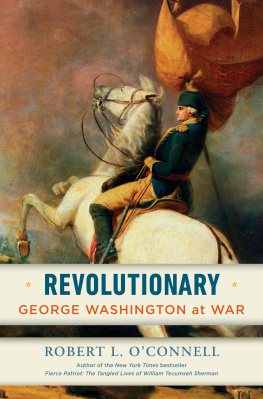
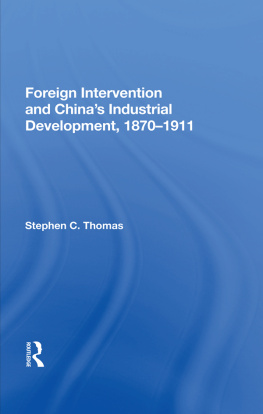

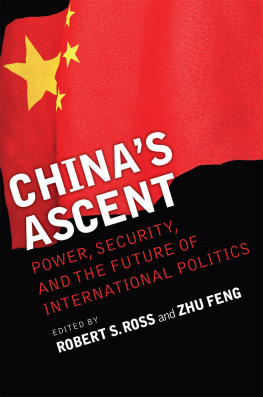
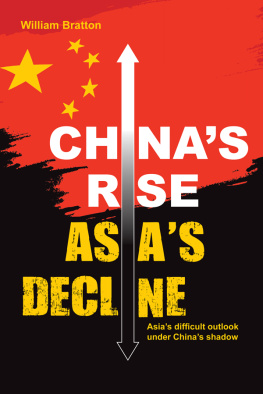
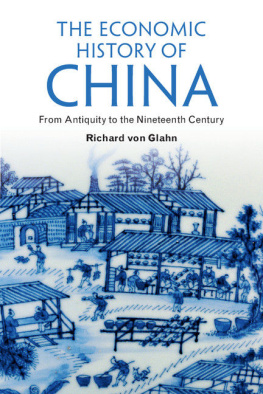
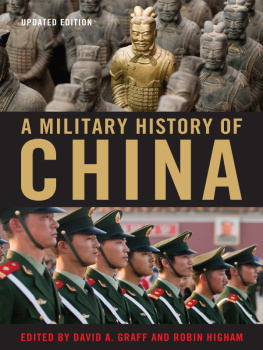
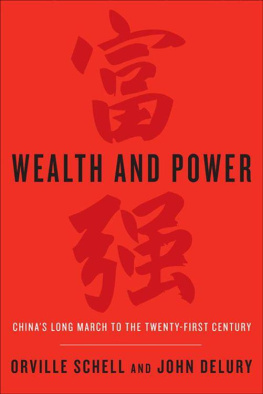
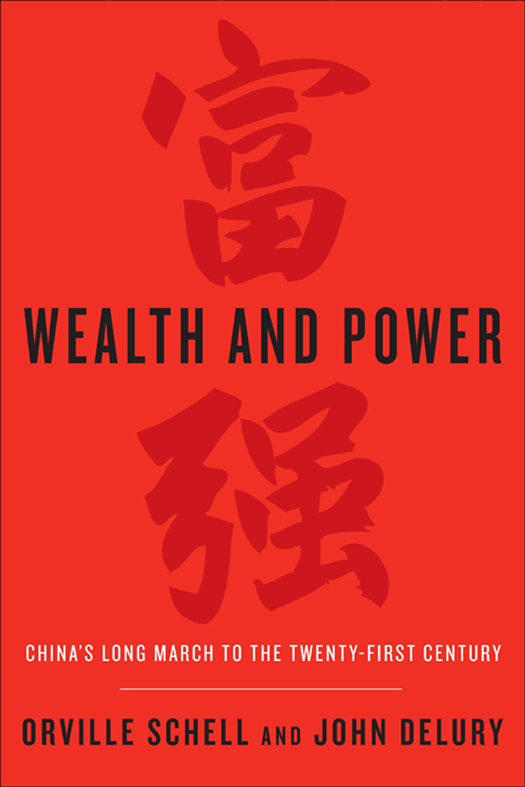
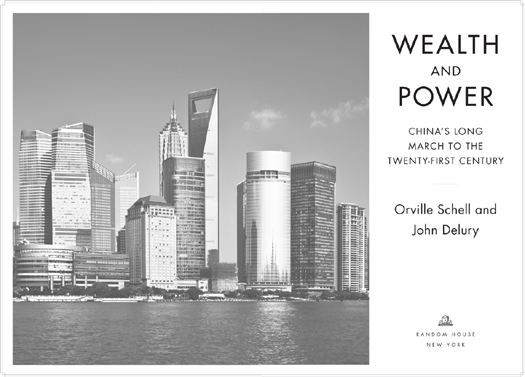
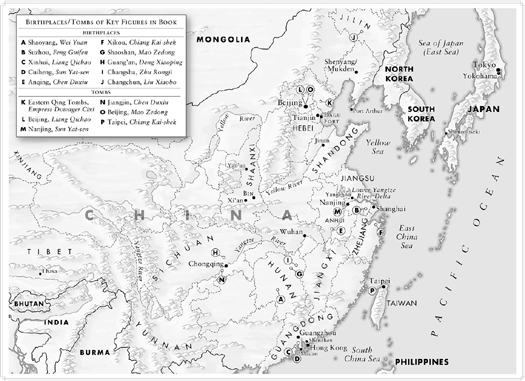
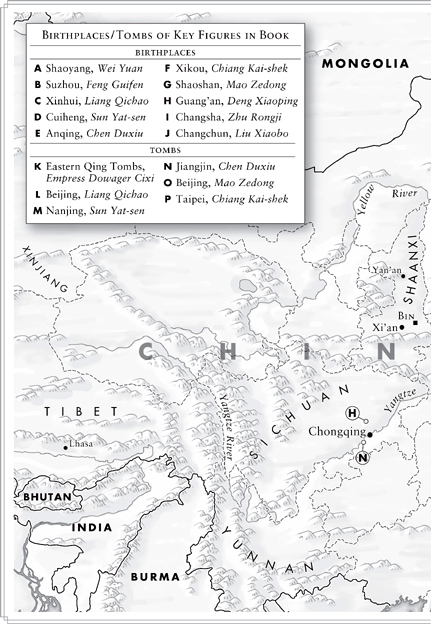
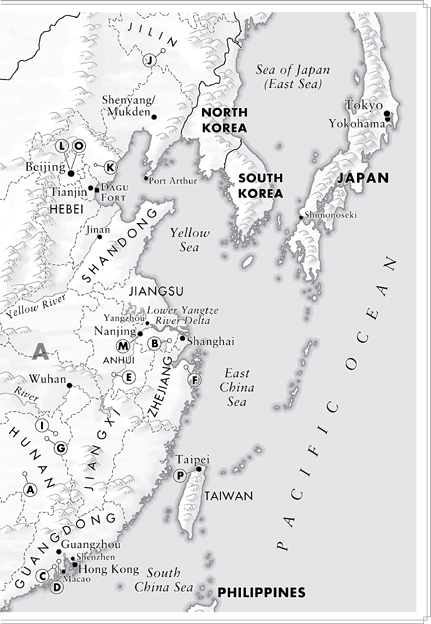


 ), the Central Kingdom. Today, however, after three decades of dynamic economic growth on a scale and speed beyond anything the modern world has ever known, the fantasies of Liang Qichao and Lin Yutang seem prophetic.
), the Central Kingdom. Today, however, after three decades of dynamic economic growth on a scale and speed beyond anything the modern world has ever known, the fantasies of Liang Qichao and Lin Yutang seem prophetic.